Gardener Dollis Hill: Cultivating Green Spaces in the Heart of London
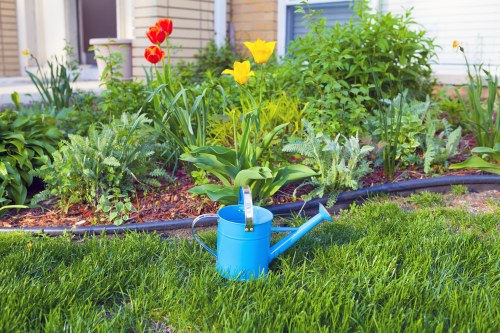
In the bustling area of Dollis Hill, London, the role of a gardener transcends mere maintenance of greenery. A gardener in Dollis Hill is a steward of the community’s natural spaces, ensuring that parks, residential gardens, and public areas remain vibrant and inviting. This article delves into the various aspects of being a gardener in Dollis Hill, highlighting the unique responsibilities, challenges, and rewards that come with nurturing the green heart of this vibrant locale.
Dollis Hill, located in northwest London, is known for its rich history and diverse community. The area boasts a variety of green spaces, including Dollis Valley Greenwalk, Gladstone Park, and several community gardens. Gardeners in this region play a crucial role in maintaining these areas, contributing to the overall well-being of residents and the environment.
One of the primary responsibilities of a gardener in Dollis Hill is the upkeep of public parks. This involves regular mowing, pruning, planting seasonal flowers, and ensuring that pathways are clear and safe for visitors. Gardeners must also manage pests and diseases organically, preserving the ecological balance of these green spaces.
The Role of a Gardener in Dollis Hill
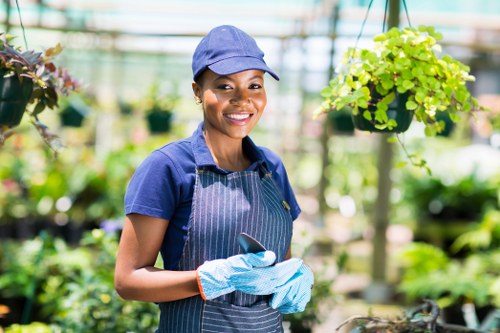
A gardener in Dollis Hill wears many hats. From landscape design to environmental conservation, their work is multifaceted. They collaborate with local authorities, community groups, and residents to create and maintain beautiful, sustainable gardens that enhance the area's aesthetic and ecological value.
In addition to maintenance tasks, gardeners often engage in landscaping projects that require a keen eye for design and sustainability. They select plant species that are well-suited to the local climate, ensuring minimal water usage and promoting biodiversity.
Community engagement is another vital aspect of a gardener’s role. Organizing workshops, planting events, and educational programs helps foster a sense of community and encourages residents to take an active interest in their local environment.
Skills and Qualifications
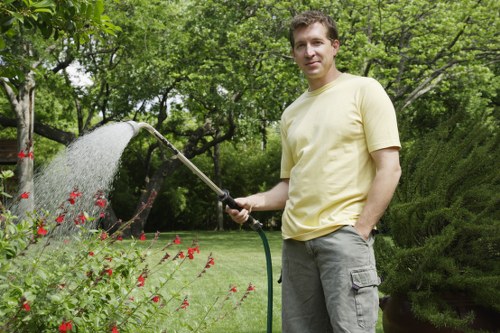
Becoming a gardener in Dollis Hill requires a combination of formal education and hands-on experience. Many gardeners have certifications in horticulture or related fields, providing them with the knowledge needed to manage diverse plant species and gardening techniques.
Practical skills are equally important. Gardeners must be adept at using various tools and machinery, from hand pruners to lawnmowers. Physical stamina and the ability to work outdoors in various weather conditions are also essential.
Furthermore, effective communication skills are necessary for interacting with community members, understanding their needs, and collaborating on projects. Problem-solving abilities help gardeners address challenges such as pest infestations or plant diseases efficiently.
Challenges Faced by Gardeners in Dollis Hill
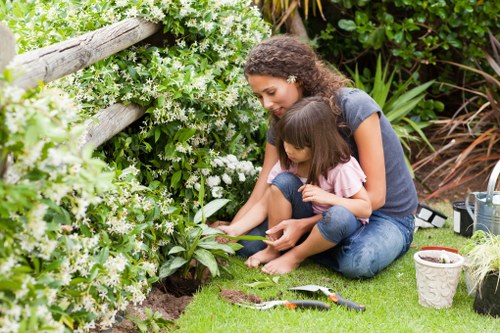
Despite the rewarding nature of their work, gardeners in Dollis Hill encounter several challenges. Urban environments can be harsh on plants, with pollution, limited space, and varying microclimates posing significant hurdles.
Maintaining the health of plants in such settings requires innovative solutions and a deep understanding of horticultural practices. Gardeners must continuously adapt to changing conditions, implementing sustainable practices to mitigate environmental stressors.
Additionally, budget constraints and resource limitations can impact the scope of gardening projects. Gardeners often need to maximize the impact of their efforts with limited tools and supplies, prioritizing tasks that offer the most significant benefits to the community.
Environmental Impact and Sustainability
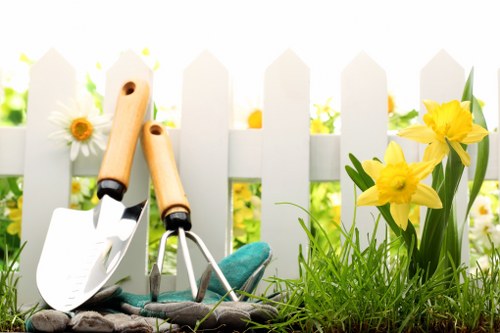
Sustainability is at the forefront of gardening practices in Dollis Hill. Gardeners prioritize eco-friendly methods, such as composting, rainwater harvesting, and the use of native plant species, to reduce the environmental footprint of their work.
By promoting biodiversity and creating habitats for local wildlife, gardeners help maintain ecological balance in urban settings. These efforts contribute to cleaner air, improved soil health, and enhanced resilience against climate change.
Furthermore, gardeners advocate for green initiatives, encouraging the community to engage in sustainable practices at home. This includes educating residents on the benefits of organic gardening, energy-efficient landscaping, and the importance of conserving natural resources.
Gardening Techniques and Innovations
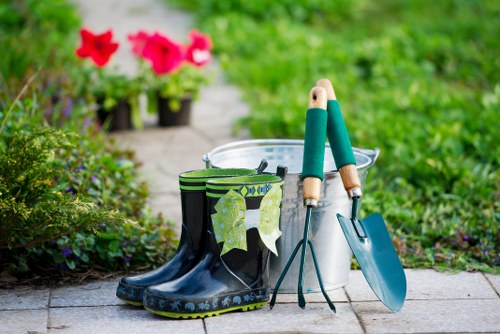
Modern gardening in Dollis Hill incorporates a variety of techniques and innovations aimed at improving efficiency and sustainability. Vertical gardening, for instance, maximizes limited space by allowing plants to grow upwards, reducing the need for extensive ground coverage.
Hydroponics and other soil-less farming methods are also gaining popularity, enabling gardeners to cultivate plants in controlled environments with minimal water usage. These techniques are particularly beneficial in areas with limited soil quality or space constraints.
Additionally, the use of technology, such as automated irrigation systems and smart gardening tools, enhances the precision and effectiveness of gardening tasks. These advancements help gardeners optimize resource usage and maintain healthier gardens with less manual effort.
Community Gardens and Their Importance
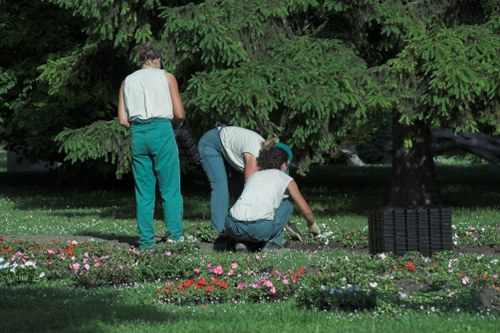
Community gardens are vital components of Dollis Hill’s green landscape. These shared spaces provide residents with the opportunity to grow their own vegetables, flowers, and herbs, fostering a sense of ownership and pride in their community.
Gardeners play a pivotal role in establishing and maintaining these gardens, coordinating efforts among neighbors, and ensuring that the spaces remain productive and aesthetically pleasing.
Community gardens also serve as educational hubs, where individuals can learn about sustainable gardening practices, healthy eating, and environmental stewardship. They promote social interaction and strengthen community bonds by bringing people together around a common passion.
Impact on Mental Health and Well-being
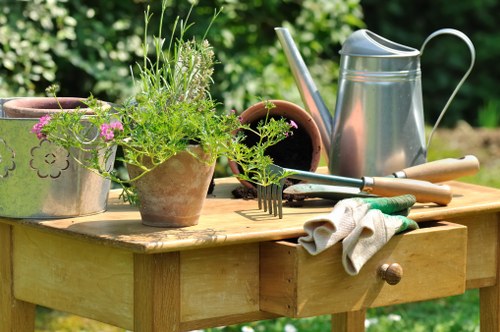
Gardening has been shown to have numerous mental health benefits, providing a therapeutic outlet for stress relief and promoting overall well-being. In Dollis Hill, gardeners contribute to creating environments that encourage relaxation and mindfulness.
Spending time in green spaces has been linked to reduced anxiety, improved mood, and enhanced cognitive function. By maintaining parks and gardens, gardeners help create sanctuaries where individuals can unwind and reconnect with nature.
The act of gardening itself is also beneficial, offering physical activity, a sense of accomplishment, and opportunities for creative expression. These factors collectively contribute to the mental and emotional health of the community.
Economic Benefits of Gardening
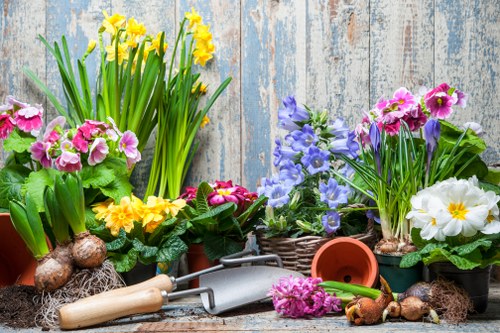
Gardening in Dollis Hill not only enhances the aesthetic appeal of the area but also brings economic benefits. Well-maintained green spaces can increase property values, attract tourists, and stimulate local businesses.
Public parks and gardens create venues for events and activities, drawing visitors and boosting the local economy. Additionally, community gardens can provide residents with fresh produce, reducing grocery costs and promoting food security.
Moreover, green initiatives often lead to savings on energy and maintenance costs by implementing sustainable practices that lower resource consumption and operational expenses.
Gardening Programs and Initiatives
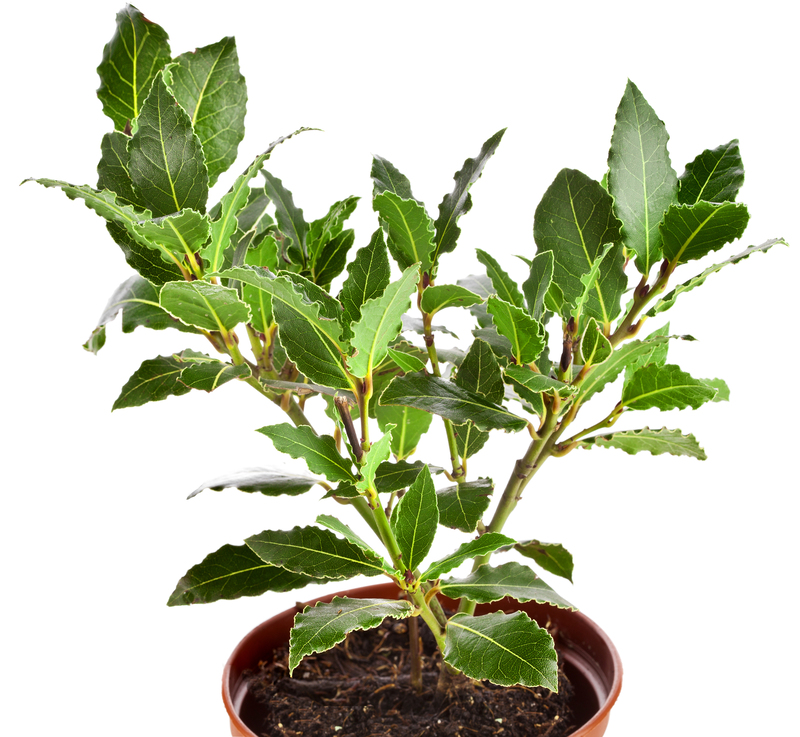
Dollis Hill hosts a variety of gardening programs and initiatives aimed at promoting green living and community engagement. These programs include workshops on organic gardening, composting, and sustainable landscaping.
Collaborations with local schools and organizations help educate the younger generation about the importance of environmental stewardship and provide hands-on gardening experiences.
Volunteer opportunities and community events foster a sense of collective responsibility, encouraging residents to actively participate in the maintenance and enhancement of their local green spaces.
Future of Gardening in Dollis Hill
The future of gardening in Dollis Hill looks promising, with ongoing efforts to expand green spaces and integrate innovative practices. Planners and gardeners are working together to design sustainable landscapes that meet the evolving needs of the community.
Emphasis on climate resilience and biodiversity will drive the selection of plant species and gardening methods, ensuring that green spaces can withstand environmental challenges and continue to thrive.
Technological advancements will further enhance gardening efficiency, allowing for more precise resource management and the integration of smart systems that monitor and maintain plant health.
Conclusion
The role of a gardener in Dollis Hill is integral to the community’s harmony and environmental health. Through dedication and expertise, gardeners cultivate spaces that enrich the lives of residents, support biodiversity, and promote sustainable living.
As Dollis Hill continues to grow and evolve, the partnership between gardeners, residents, and local authorities will remain essential in maintaining the area’s green legacy. By fostering a culture of care and appreciation for nature, gardeners ensure that Dollis Hill remains a vibrant and thriving community for generations to come.
Whether tending to public parks, nurturing community gardens, or implementing innovative gardening techniques, gardeners in Dollis Hill are the unsung heroes behind the city's lush and lively landscapes.
FAQs
1. What qualifications are needed to become a gardener in Dollis Hill?
Becoming a gardener in Dollis Hill typically requires a combination of formal education in horticulture or related fields and practical experience. Certifications from recognized horticultural institutions can enhance job prospects.
2. How do gardeners in Dollis Hill contribute to environmental sustainability?
Gardeners in Dollis Hill implement eco-friendly practices such as composting, rainwater harvesting, using native plant species, and promoting biodiversity, all of which contribute to environmental sustainability.
3. What are the main challenges faced by gardeners in urban areas like Dollis Hill?
Gardeners in urban areas like Dollis Hill face challenges such as pollution, limited space, varying microclimates, and resource constraints. They must employ innovative solutions to maintain healthy and vibrant green spaces.
4. How can community members get involved in gardening initiatives in Dollis Hill?
Community members can get involved by participating in local gardening programs, volunteering for community garden projects, attending workshops, and collaborating with local gardening groups to support and enhance green spaces.
5. What benefits do community gardens provide to the residents of Dollis Hill?
Community gardens offer numerous benefits, including access to fresh produce, opportunities for social interaction, educational experiences, mental health benefits, and a sense of ownership and pride in maintaining shared green spaces.